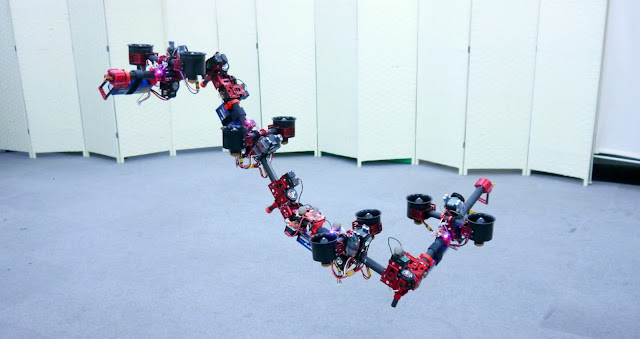Green Tech: The Role of Innovative Technologies in Combating Climate Change
Introduction
Climate change is a global challenge that requires immediate action. The world is at a critical juncture when it comes to addressing climate change. As the consequences of global warming become increasingly apparent, there's a growing urgency to find sustainable results. As the world faces the consequences of hothouse gas emigrations and environmental decline, innovative technologies, frequently referred to as" Green Tech," are rising as important tools that are playing a vital part in the fight against climate change. In this blog, we will explore the significance of Green Tech and how it's helping us transition toward a further sustainable future.
Understanding Green Tech
Green tech, also known as clean technology or environmental technology,
refers to the development and operation of innovative results that promote
sustainability, reduce environmental impact, and combat climate change. These
technologies aim to address colorful aspects of sustainability, including
energy effectiveness, renewable energy, waste operation, transportation, and
more.
The Importance of Green Tech in Combating Climate Change
Reducing greenhouse gas emigrations: Green tech plays a pivotal part in
reducing hothouse gas emigrations, which are the primary motorists of climate
change. Innovative technologies are enabling the transition from reactionary energy-grounded
energy sources to renewable energy druthers similar to solar, wind, and
hydroelectric power. This shift helps to drop reliance on carbon- ferocious
energy and alleviate the release of hothouse feasts into the atmosphere.
Energy efficiency: Green tech focuses on developing energy-effective
results that maximize energy productivity while minimizing waste. From smart
structures with automated energy operation systems to energy-effective
appliances and lighting, these technologies help reduce energy consumption and
associated carbon emigration.
Sustainable transportation: The transportation sector is a significant
contributor to hothouse gas emigrations. Green tech is revolutionizing
transportation by promoting electric vehicles (EVs), cold-blooded vehicles, and
indispensable energy sources. Also, technologies like ride-sharing platforms
and intelligent transportation systems optimize effectiveness, reduce traffic,
and drop emigration.
Waste handling and recycling: Green tech encompasses innovative waste
operation and recycling results that minimize waste generation, promote
recycling, and reduce tip emigration. Advanced recovering technologies, waste-to-energy
conversion systems, and smart waste operation systems are helping to achieve indirect
frugality and reduce the environmental impact of waste.
Smart cities and infrastructure: Green tech is driving the development of
smart metropolises and structures, which are designed to be sustainable,
resource-effective, and environmentally friendly. These technologies
incorporate rudiments like smart grids, effective water operation systems,
intelligent transportation systems, and detector networks to optimize resource
consumption, reduce emigration, and enhance overall sustainability.
Carbon capture and storage: Green tech explores technologies for
capturing and storing carbon dioxide emanations from artificial processes,
power shops, and other sources. Carbon capture and storage (CCS) technologies
help to prevent carbon dioxide from entering the atmosphere, effectively
reducing hothouse gas emigrations.
Promising Green Tech Innovations
Renewable energy: Solar power, wind energy, geothermal energy, and
hydroelectric power are fleetly advancing as feasible druthers to fossil
energies. Continued exploration and development in these areas are perfecting
effectiveness, reducing costs, and adding the relinquishment of renewable
energy sources.
Battery technologies: Advancements in battery technologies are essential
for the wide relinquishment of renewable energy and electric vehicles. Energy
storehouse results, similar to lithium-ion- ion batteries, are getting more
effective, durable, and cost-effective, enabling the integration of renewable
energy into the grid and extending the range of electric vehicles.
Artificial Intelligence and Machine Learning: These technologies are
being abused to optimize energy consumption, prognosticate energy demand, and
ameliorate the effectiveness of colorful systems. AI and machine literacy
algorithms help dissect vast quantities of data to identify patterns and
optimize energy operations, leading to further sustainable practices.
Green building materials and design: Innovative accouterments and design
ways are transubstantiating the construction assiduity. Green structures
incorporate sustainable accouterments, energy-effective designs, and smart
technologies to minimize energy consumption, reduce hothouse gas emigrations,
and produce healthier living and working surroundings.
Circular economy solutions: Technologies are being developed to support an
indirect frugality, where coffers are used efficiently and waste is minimized.
These results include advanced recycling technologies, composting systems, and waste-to-energy
conversion styles that reduce the environmental impact of waste and promote
resource conservation.
The Path Forward
Green tech holds immense eventuality to combat climate change and produce
a sustainable future. Still, its wide relinquishment requires collaboration
between governments, businesses, and individuals. Governments can incentivize
and support the development of green technologies through programs, backing,
and nonsupervisory fabrics. Businesses can drive invention by investing in
green tech results and espousing sustainable practices. Individualities can
contribute by making environmentally conscious choices and supporting companies
that prioritize sustainability.
Challenges and Considerations
While Green Tech offers promising results to combat climate change,
challenges remain. These include the need for continued exploration and
development, policy support, and public mindfulness. Also, the transition to
Green Tech may bear significant outspoken investments, although the long-term
benefits, both economically and environmentally, frequently outweigh the costs.
Conclusion
Green Tech represents a lamp of a stopgap in our battle against climate
change. Innovative technologies are revolutionizing the way we induce energy,
consume coffers, and live sustainably. As we continue to invest in and develop
Green Tech results, we move closer to a world where our conduct aligns with the
thing of conserving our earth for unborn generations. It's a memorial that our
technological imagination can be exercised to produce a greener and more
sustainable future for all.



Comments
Post a Comment